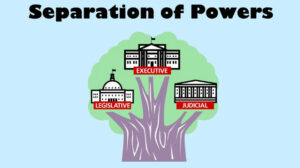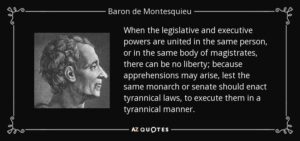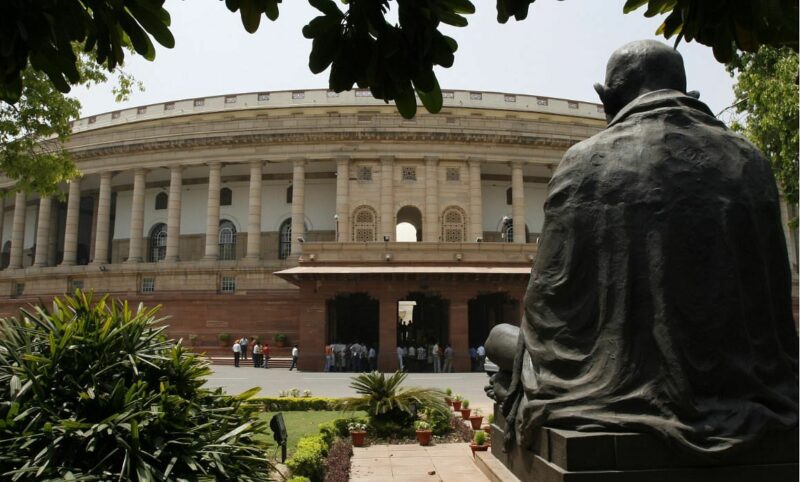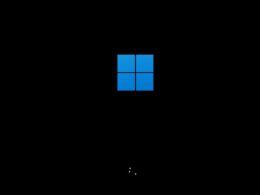Three pillars of democracy that is the Legislature, Executive, Judiciary enjoy their own degree of autonomy for effective functioning. Besides there exists certain checks and balances to ensure none of them is left with arbitrary powers. Is it true in spirit?
“It’s hard to put leash on a dog once you’ve put a crown on his head” – This dialog by Tyrion Lannister in Game of Thrones sounds relevant in a democratic space too.

Democratic institutions are built on the core idea that people should be the ultimate decision-makers. To establish a welfare state, decisions must be taken considering the needs of every section and the aspiration of the nation. This led to the formation of governments based on written and unwritten constitutions. For effective implementation of these decisions, there must not be any biasing. Hence one who implements must not be the evaluator, and one who evaluates must not be the rule maker. This triangle love story is the principle of separation of powers. Limited powers and separate operation domains result in lesser whimsical discretion and provide a nation-state identity and sovereignty.

Blurred lines
Taking references from world democracies, several countries adhere to the doctrine of checks and balances. Like the veto power of US President and Judiciary’s final decision on legislature’s impeachment resolution in South Korea. In the case of India, the apex court has the power to pass an order that directs the executive to act in a certain way (E.g., Banning of crackers). For a bill to become an act in the legislature, it has to be approved by the President, who acts on aid and advice of the executive. Legislature can remove both the executive and judges, calling it a feature of parliamentary democracy. What do we call all these instances? Checks and balances or overriding of powers? The question comes in when the checks, instead of smoothening the process, end up hampering it. At times they become the source of corruption, degrading its very purpose of existence. (E.g., concerns over the executive role in the appointment of judges).
Redefining the lines

Corruption Perception Index of Transparency International quotes “the most successful anti-corruption reforms (like Cuba and Singapore) that started with top-down interventions, eventually had to incorporate more bottom-up approaches to ensure their sustainability”. Thus the functional restrictions on the government begin with the citizens, from constructive criticisms to fundamental rights. This checks corruption and spillover disadvantages in the doctrine of checks and balances. In India, from cases such as Indira Gandhi vs. Raj Narain (1975) where the judicial powers of the legislature to decide an election void was contested for its constitutionality, interpretations of separation of powers keep evolving. Redefining the blurred lines of spheres of action by accommodating contemporary challenges from time to time protects the essence of the doctrine. This could be settling the differentiation between judicial review and judicial activism, more financial autonomy to the organs of state, improving accountability at the grass-root level.
Will recognizing media as the fourth pillar of democracy improvise the system of checks and balances? The comment box is looking for your views.









2 comments